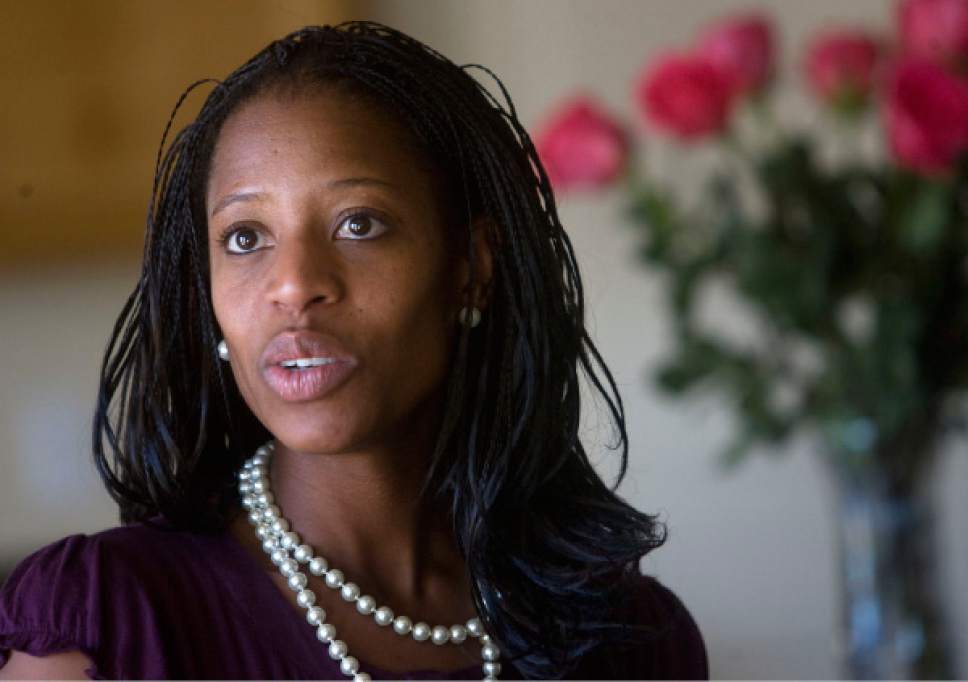This is an archived article that was published on sltrib.com in 2017, and information in the article may be outdated. It is provided only for personal research purposes and may not be reprinted.
In the spring of 2013, Utah faced a crisis: The Department of Corrections did not have enough beds to accommodate all the women they locked up.
So, our state did something to fix the problem. Utah launched the "Female Offender Success Initiative" to offer gender-specific programs to help women in prison overcome drug addiction and other underlying traumas.
The program has been a rousing success. A female prison population that once exceeded the 671 beds available to women now averages about 422 inmates each month, according to the Utah Department of Corrections – a nearly 40 percent drop.
Just talk to some of the women who emerge from the Atherton Community Treatment Center in West Valley City. "They genuinely care," one of the first enrollees said of the facility that opened in 2015 as part of the Female Offender Success Initiative. "Women, we need that."
In the past few decades, the number of women behind bars has exploded, increasing 14-fold and, even more so than for men, drug arrests are a driving factor. At the state level, 25 percent of women are behind bars for a drug offense compared with 15 percent of male prisoners. In federal system, almost 60 percent of women are there because of drugs, but no one is offering solutions to this increasing crisis.
That needs to change. This issue is too pressing to be hung up by partisan labels. Drugs don't discriminate based on whether the women are in a red state or a blue state and our response shouldn't either. We need policy answers that will stem the trend of women being incarcerated but also address the unique needs women present to the justice system. That is why I recently participated in "Women Unshackled," a forum in Washington, D.C., to explore solutions to the skyrocketing number of women in our prisons.
Nearly 80 percent of women behind bars are mothers, many of whom are single mothers, yet they rarely get to hold or even see their children. These barriers create not only physical distance but also an emotional distance that is hard to repair once these mothers leave prison. Women then have a much more difficult time rejoining society and reconnecting with their families.
Most prison systems at the state and federal level don't account for women's needs when it comes to treatment and rehabilitation in prison, instead slotting them into programs that are too often geared toward men. We need better data on what programming works best for women and their complex needs. When these issues are not fully addressed, women are more likely to return to their old patterns that put them behind bars in the first place.
This is one reason we're failing to reduce recidivism for women. Our justice system is not offering the right support for women to transition back to their communities.
In Utah, we implemented a risk-assessment tool developed at the University of Cincinnati specifically aimed at preventing women from returning to prison. The program looks to identify women at the highest risk of committing future crimes after their sentence ends. We also provided additional training for how to address some of the emotional issues that prompt many women to commit crimes and work with courts to tailor sentences and other punishments specifically for women.
Other states, as well as the federal government, would be wise to adopt similar reforms.
Policymakers at every level of government can do more to tailor our criminal-justice laws to specific needs. At a time when drug addiction and the opioid crisis are driving arrests across the country, we can improve programs both inside and outside prison that give women more access to mental health and substance abuse treatment. We can support mothers by providing better links to their children, keeping the family bond intact and ensuring there is a support system for women to return to once they leave incarceration. And we need more information and studies to offer the best methods for rehabilitating women once they've entered the justice system to prevent them from returning.
It will take a real commitment to make a change. We need to work together in a bipartisan way to offer these solutions and improve the justice the system for women, their families and communities. The rewards are enormous. Just look at what these reforms have done for Utah.
Mia Love, a Republican, represents Utah's 4th District in the U.S. House of Representatives.



